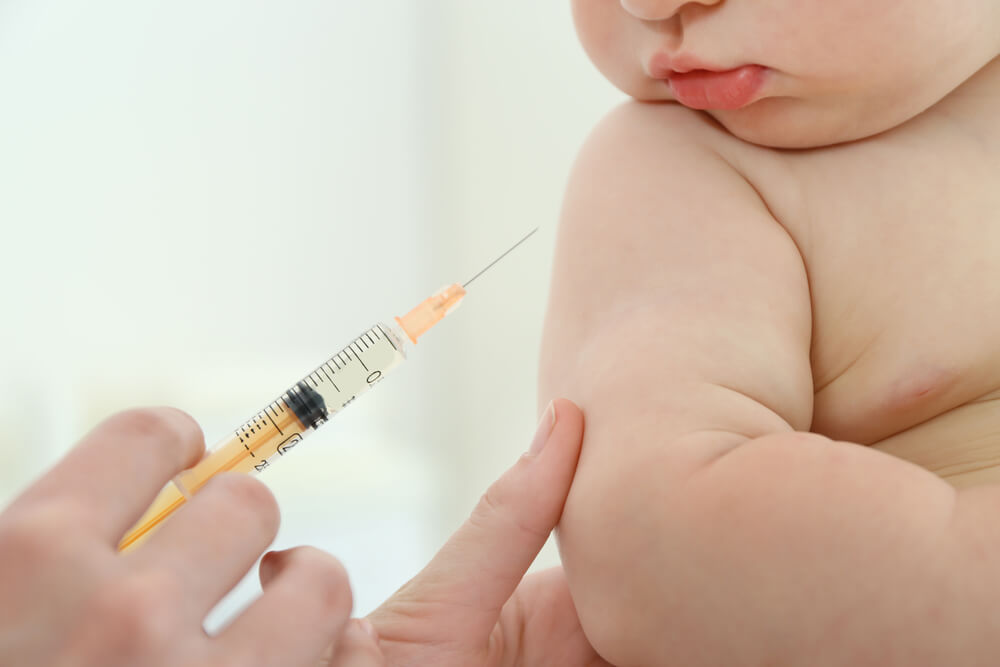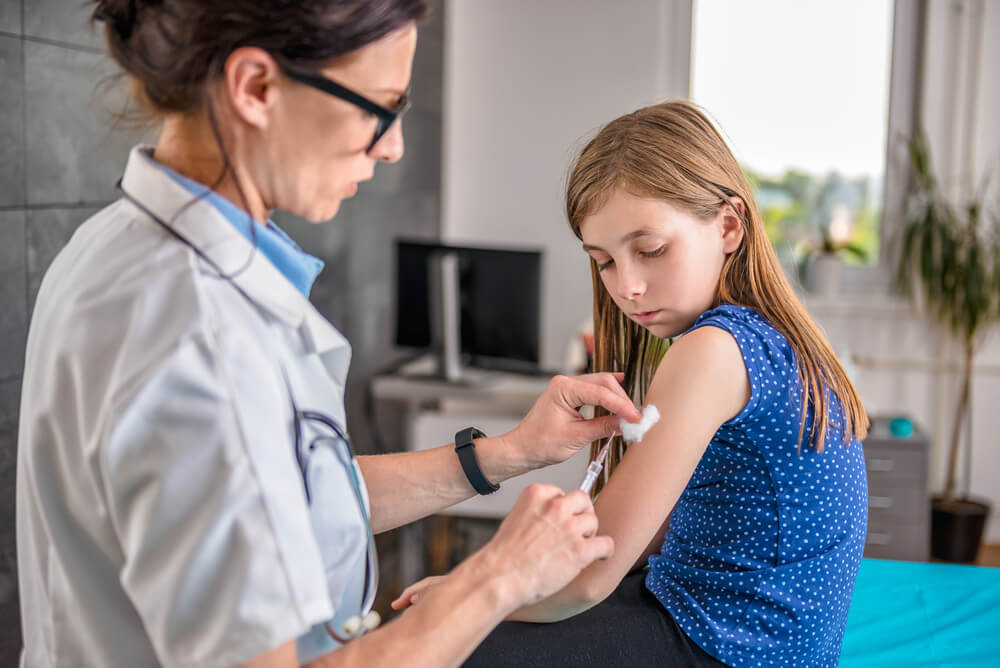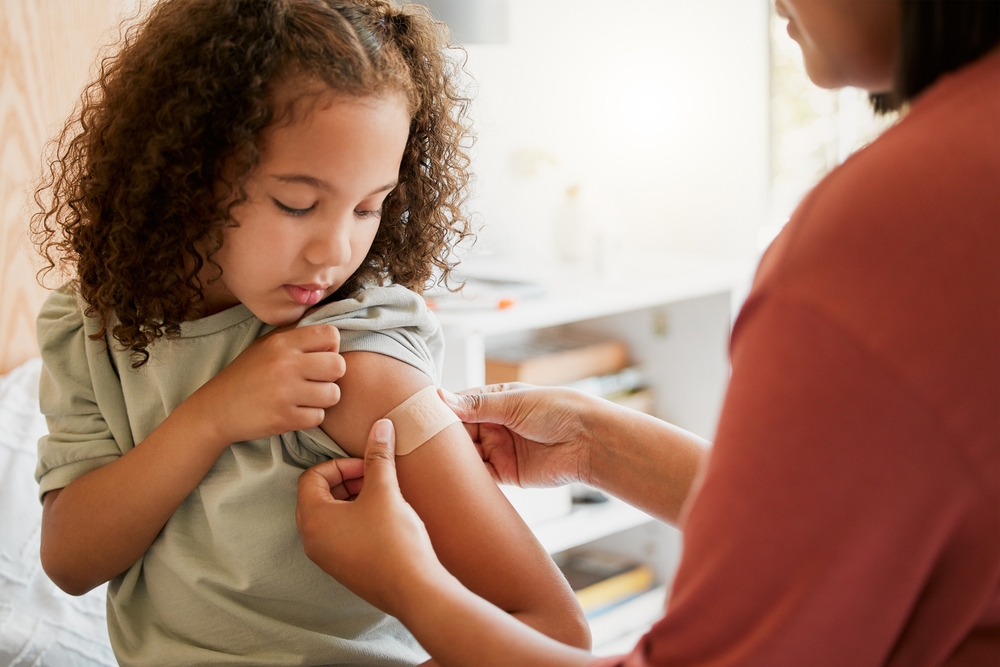Childhood immunizations have played a vital role in improving public health for decades. Infant vaccinations and other shots given later in childhood protect children from potentially severe and life-threatening diseases. Vaccines stimulate the immune system to develop immunity against specific pathogens, such as viruses or bacteria. By vaccinating children, we can prevent diseases like measles, polio, diphtheria, whooping cough, hepatitis, and many others.
Our experts at Children’s Medical Center of South Florida also often point out that childhood and infant vaccinations have also often played a significant role in reducing the rates of illness, hospitalizations, and deaths caused by vaccine-preventable diseases. By immunizing children, we can effectively decrease the burden of these diseases in communities.
These vaccines are thoroughly tested to ensure that they don’t cause any harm to children, and as a result, the development of these immunization shots often takes many years, as the compounds have to get through several trials to gain approval.
That said, in this article, we’re talking about the importance of childhood immunization and will also discuss the appropriate vaccine age for certain shots.
Childhood Immunizations and Vaccines By Age
Before we start discussing the timeline of these immunizations, it’s important to remember that the recommended schedule for these vaccines may vary depending on your location, the type of vaccine, your child’s overall health, and the compounds available in your area.
Some of these immunization shots may be administered as a part of combination vaccines with the aim of giving children fever shots. Still, before taking your child to these immunizations, it’s recommended to schedule a consultation with your pediatrician about which vaccine your child might need.
Infant Vaccinations
When looking at vaccinations by age, at the time of birth, infants will receive the Hepatitis B vaccine. In ideal cases, the first dose will be administered within 12 or 24 hours after birth. Children who haven’t been previously immunized may receive the shot at any age. Infants with low-weight births might receive the shot at one month of age or when they finally get discharged from the hospital.

Between One and Two Months of Age
At this time, infant vaccinations should consist of the second dose of the Hepatitis B Vaccine.
Furthermore, at around two months of age, children will also receive the following childhood immunizations:
- DTaP: Acellular pertussis vaccine, tetanus, and diphtheria
- IPV: inactivated poliovirus vaccine
- RV: The rotavirus vaccine
- PCV: Pneumococcal conjugate vaccine
At Four Months Old
- Hib
- IPV
- PCV
- RV
- DTaP
At Six Months Old
- RV: This third dose might be necessary, but it will depend on the brand of vaccine that experts administered during previous RV immunizations.
- Hib: As with RV immunizations, this third dose will be only needed in specific cases.
- DTaP
- PCV
At Six Months and Annually
Flu Shot (influenza)
Flu shots are recommended to be administered annually for children who are six months and older. On that note, children younger than nine who get the shot for the first time (or those kids who have only had one dose of the immunization before July 2022) will get the immunization in two doses at least one month apart. On the other hand, those who are younger than nine and had at least two doses of the shot previously (or before July 2022) will only need a single dose. Lastly, kids who are older than nine will only require one dose.
The vaccine can be administered through injection using a needle (known as the flu shot) or via a nasal spray. For the current flu season (2022-2023), both types of vaccines are considered equally effective. Your doctor will determine the most suitable option based on your child’s age and overall health. The nasal spray vaccine is specifically intended for healthy individuals aged 2 to 49. However, it is important to note that individuals with weakened immune systems, certain health conditions (like asthma), and pregnant women should not receive the nasal spray vaccine.
From Six to 18 Months
- IPV
- HepB
From 12 to 15 Months
- Varicella or chickenpox
- Hib
- PCV
- MMR: Measles, mumps, and German measles or rubella vaccine. This childhood immunization is often administered in combination with varicella shots, and it’s called MMRV.
Between 12 and 23 Months
- HepA: This is the Hepatitis A vaccine, typically administered in two doses, ideally at least six months apart.
From 15 to 18 Months
- DTaP
From Four to Six Years
- Varicella
- MMR
- IPV
- DTaP
From Nine to 16 Years Old
- Dengue vaccine: Children who have previously experienced dengue fever and reside in regions with a high prevalence of the disease, such as Puerto Rico, American Samoa, and the U.S. Virgin Islands, receive a three-dose regimen of this vaccine.
11 To 12 Years
- HPV: The human papillomavirus vaccine is administered in two doses, typically spanning a 6- to 12-month timeframe. It can be given as early as nine years of age. For adolescents and young adults (ages 15-26), the vaccine is given in three doses over a period of 6 months. It is recommended for both girls and boys as a preventive measure against genital warts and certain types of cancer.
- MenACWY: This childhood immunization is called the meningococcal vaccine, which protects against type A, C, W, and Y meningococcal bacteria. Usually, children get a booster dose at age 16.
- TdaP: The Tdap vaccine is a booster that protects against tetanus, diphtheria, and pertussis (whooping cough). It is also advised to receive the Tdap vaccine during each pregnancy a woman has.

From 16 To 18 Years
- MenB: The meningococcal vaccine guards against the meningococcal type B bacterium. Depending on the brand, kids and teenagers may receive the MenB vaccine in either two or three doses. Unlike the meningococcal conjugate vaccine, which is generally recommended for everyone, the decision to administer the MenB vaccine is made jointly by the teens, their parents, and their healthcare provider. It is typically recommended as a routine vaccination for children aged ten and above who have certain conditions that compromise their immune system or during a meningococcal outbreak.
Reach out To Learn More
For some parents, vaccination might be a sensitive topic. As such, it’s imperative that they learn as much as they can about these immunizations to make informed decisions about them. As such, we highly encourage parents to reach out to us if they wish to learn more about childhood immunizations and the necessary vaccines by age.
We are more than ready to give guidance and answer all your questions and concerns.


